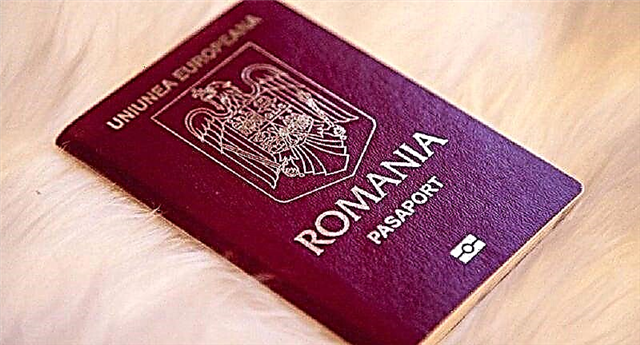When planning a move or a long stay in Poland, a person thinks not about historical places that can be visited, but about how to organize his life and ensure financial well-being. Regardless of the form of employment - individual commercial activity or employment - he will have to pay taxes in Poland. The only difference is in the set of fiscal payments and the way they are collected.

Taxation of foreigners in Poland
Unlike many other countries, Polish tax legislation did not raise tax rates for those who cannot boast of having a passport of a citizen of the Republic of Poland.
Nevertheless, any income of a foreigner received in the Polish customs territory is subject to tax, be it dividends, wages, inheritance or winnings.
The status of a tax resident makes it possible to use the rights to tax deduction for personal income tax and some other benefits to reduce fiscal obligations.

The taxpayer who is within the country for 183 or more days a year and makes a financial contribution to the state treasury can change his status.
List of tax payments
The Polish tax system is maximally synchronized with the fiscal schemes of the EU countries and most international partners. This was done in order to avoid the risk of double taxation of foreign investors in Poland and their own citizens doing business outside their home country.
Tax payments in the Polish Republic are divided into:
- direct taxes (podatek bezpośredni);
- indirect taxes (podatek pośredni);
- taxes on individual transactions.
At the same time, 10 types of payments are referred to direct ones:
| The essence of the collection | Polish name | Approval level | Bid |
|---|---|---|---|
| Personal income tax - tax residents and non-residents of Poland (personal income tax) | Podatek dochodowy od osób fizycznych or PIT | The state budget | 18 and 32% of income received (progressive scale) |
| Income tax of enterprises and commercial organizations | Podatek dochodowy od osób prawnych or CIT | 19% of the declared profit | |
| Tonnage tax | Podatek tonażowy | Up to 19% (from each ton of cargo or displacement unit) | |
| Subsoil use fees | Podatek od wydobycia niektórych kopalin | Based on the extracted volume | |
| Payments from civil contracts (GPC) | Podatek od czynności cywilnoprawnych or Civil Law Activities Tax (CLAT) | Up to 20% of the contract amount | |
| Inheritance and gift tax | Podatek od spadków i darowizn | The range of rates depends on the degree of kinship and the type of property transferred | |
| Agricultural tax | Podatek rolny | Municipal budgets | It can be levied both from each unit of the crop and from each hectare of agricultural land |
| From forestry income | Podatek leśny | The cash equivalent of the cost of 0.202 cubic meters. m from 1 hectare of forest | |
| Contributions from property owners | Podatek od nieruchomości | Installed by the communes and depends on the type of property and its location. Paid annually | |
| Transport tax | Podatek od środków transportowych | It is installed by communes and depends on the type of transport, the volume of its engine and the year of manufacture. |
Indirect payments are considered to be:
- VAT (Podatek od towarów i usług or VAT) - is calculated at the base rate of 23% of the value added amount (while there are regimes when VAT is levied at preferential rates from 0 to 8%);
- excise taxes (Akcyzy) - per unit of each excisable product in a fixed amount (tobacco, alcohol and beer, fuel and lubricants, sales of cars with an engine capacity of more than 2000 cubic cm).
Separately, we can mention the obligation to pay a percentage of the income on the deposit (podatek od zysków kapitałowych) and the collection from the proceeds of gambling establishments (Podatek od gier).
Taxation of income of individuals
Any income of an individual in Poland, regardless of resident status, is the basis for personal income tax (PIT). The tax rate directly depends on the size of the payer's annual income:
- up to PLN 3,091 - 0%;
- up to PLN 85,528 - 18%;
- over PLN 85,528 - 32%.
In this case, the rate is applied according to the principle of a progressive scale. This means that the increased interest is withheld from the portion of income that exceeds the approved threshold.
For example, the tax on 50,000 zlotys will be calculated using the formula: (50,000 - 3,091) * 18% = 8,443.62 zł.
Do not forget that in Poland there are deductions and tax benefits:
- benefits for those who have children - from 92.67 PLN per month for one child to 225 PLN for the fourth or more;
- joint calculation of obligations when filing a declaration with a non-working spouse or child - this way you can reduce the personal income tax rate from 32 to 18%;
- tax deductions for people with low incomes - for example, an annual income of up to PLN 8,000 is exempt from personal income tax.
Taxation of wages
A Pole or a foreigner who receives income only in the form of a salary does not have to worry about withholding and transferring taxes to the budget: all these operations must be carried out by the employer, so the responsibility for paying the fees lies with him.

In order for the employee to understand why there is a difference between the accrued salary (gross) and the salary given to him (net), he must know the list of mandatory deductions:
- income tax (PIT) - from 18 to 32% depending on the amount of income;
- pension contributions - 9.76% at the expense of the employee and the same amount at the expense of the employer;
- in case of incapacity for work - 2.45%;
- in case of disability - 1.5%;
- for medical insurance - 9%.
List of tax payments for organizations
The main taxes for legal entities in Poland are considered to be income tax (CIT), VAT (VAT) and excise duties. In this case, it also does not matter whether the investor has resident status or the organization has just entered the Polish market.
Tax rates are common for all:
- CIT - 19%;
- VAT - 23% (from 0 to 8% for socially important products and exports to EU countries);
- excise taxes - at fixed, approved prices per unit of goods or volume (for example, pieces or liters).
Only those enterprises that are engaged in agriculture, forestry or related to water transport were exempted from all these fees. Systems for payment of agricultural tax, timber and tonnage tax have been developed for them.
VAT refund for tourists and guests
Anyone who visits Poland on a short visit has the opportunity to return part of the value of the purchased goods if the purchase amount exceeds 200 PLN. This can be done thanks to the Tax Free system applicable to VAT paid on Polish territory.
To get a tax refund, a tourist just needs to mark a VAT payment document at the border and apply for a refund to an authorized bank in his home country.
In order for the operation to take place without any hesitation, you need to remember some of the nuances:
- the seller must be a VAT payer and, in addition to checks, must issue the buyer a special form (invoice) for customs;
- the cost of a unit of goods must exceed 200 zlotys (not to be confused with the total amount of all purchases);
- the paid goods when crossing the border must be in their intact original packaging without signs of opening and use;
- the removal of the purchased goods must take place no later than 90 days after the purchase.
Tax Free is for non-commercial purchases only, that is, products purchased for personal use and not for resale.
Of course, the seller will not ask why the client needs all the goods he buys, and will happily write out an invoice for several units of an identical model. But at the border, questions will surely arise: the customs officer will certainly question the fact that a person himself will use one style of coat of different sizes.The inspectors will not believe that the tourist bought several phones exclusively for personal needs.
Tax reporting
All reports of individuals and legal entities are submitted through the regional offices of the National Tax Administration (Krajowa Administracja Skarbowa), which is part of the Ministry of Finance of Poland.
The payer can submit his declarations personally or remotely (by mail or via electronic service).
The indisputable convenience of electronic filing of the declaration is that the website is always promptly updated reporting forms and instructions for filling them out. In addition, the deadline for submission ends at 23.59 on the last days established by law, and is not limited by the operating hours of the fiscal authority.
In Poland, the requirement to submit monthly reports is not abused, so most returns must be submitted once a year by April 30 of the next calendar period.
Within the same time frame, it is necessary to carry out the final calculation of tax liabilities, taking into account the advance payments transferred for the first 11 months of the reporting year.
Deliberate refusal to submit reports and non-payment of taxes may result in criminal prosecution of the taxpayer.

Those who receive income only as an employee do not need to worry about this - for them the burden of reporting and responsibility for the timely transfer of payments is borne by the employer.
International agreements on the avoidance of double taxation
One of the incentives for attracting foreign investment to any country is considered to be a transparent fiscal policy and a guarantee that there are no risks of double taxation. In this respect, the Polish authorities are doing everything possible: interstate agreements have been concluded with 92 countries of Western and Eastern Europe, the CIS, Africa and Asia, both Americas and even with Australia.
The signed agreements allow investors earning income in Poland to pay taxes only on its territory. At home, foreigners must pay only those types of fees that are not subject to agreements between states.
Punishment for tax evasion
In the fiscal authorities of Poland, it is customary to separate two concepts: tax evasion and tax concealment. The latter type of action is unambiguously regarded as a criminal offense, and it does not matter whether the payer hides the amount of taxes or illegally reduces the tax base.
Tax evasion can be intentional or unintentional. For example, during the inspection, the inspector can establish the fact of non-payment due to misinterpretation of legislation. In this case, the controlling authorities are no longer disposed to punish the businessman, but to pay off the accrued tax and levy arrears. Of course, for such violations, an enterprise or an entrepreneur will face fines as a percentage of arrears and a penalty for each day of delay.

The amount of the financial penalty depends on the size of the minimum wage. Since the beginning of 2021, the sanctions have increased, as the Poles have raised this figure to 2,000 zlotys per month.
Fines are calculated in three ways:
- at a daily rate - 1/30 of the amount of the minimum wage for each day of delay, but not more than 400 rates for one violation;
- in a fixed amount - within 10% of the minimum wage, but not more than 20 times its amount;
- in the amount of the mandate - special fines, not more than two minimum wages.
The type of responsibility and the amount of fiscal sanctions against guilty persons and business entities are established by the court.
Eventually
Polish taxation is characterized not only by simple and transparent principles for calculating tax liabilities and filing reports, but also by an equal approach to the income of residents and non-residents of the country. Unlike most European countries, in Poland the tax rates are the same for fellow citizens and foreigners.











